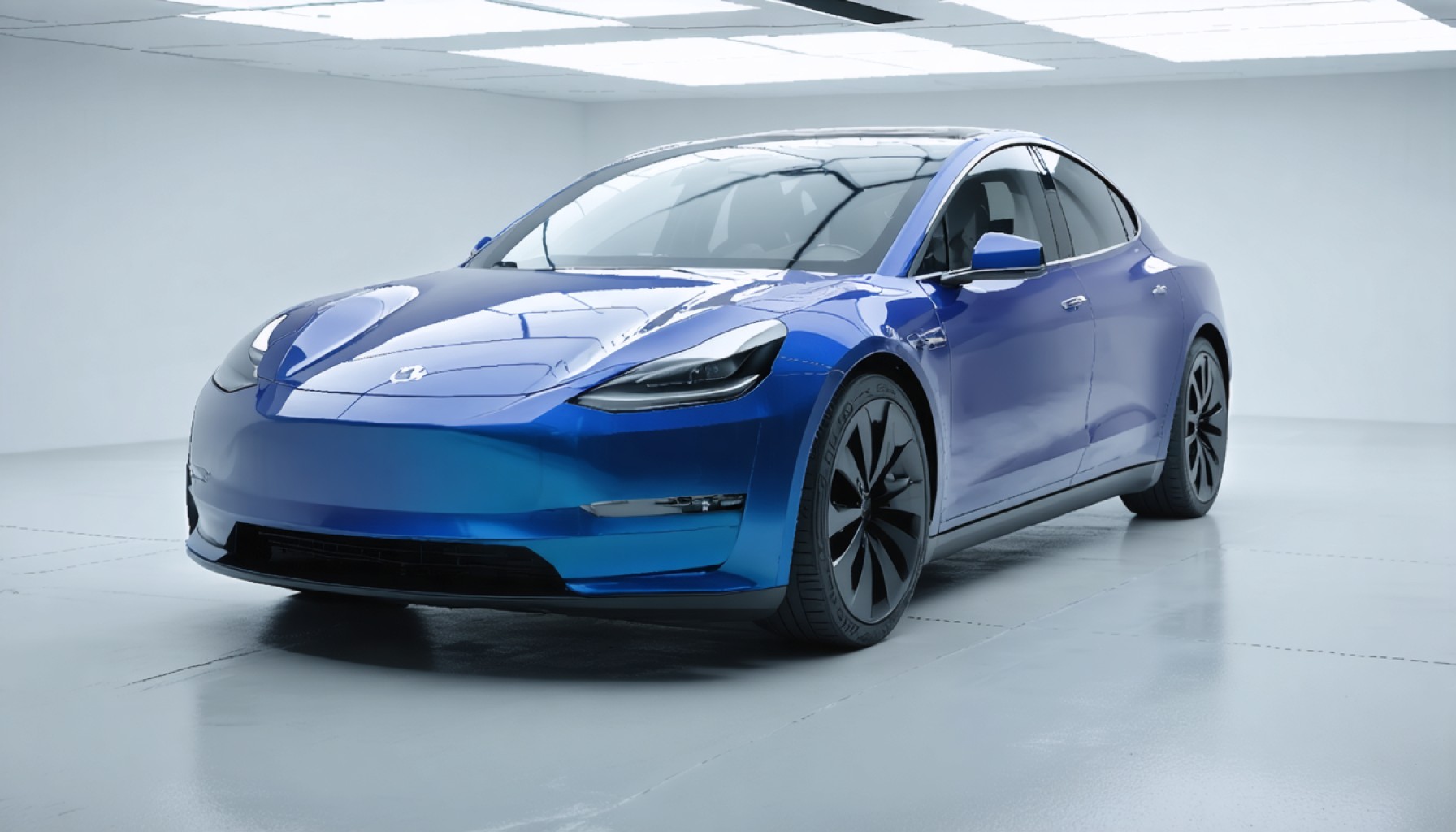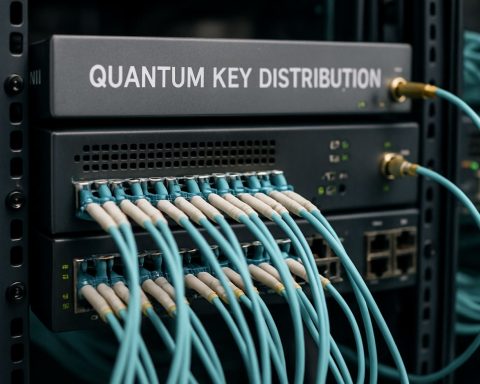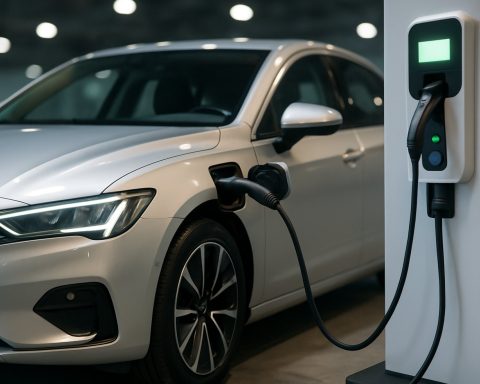- Ascend Elements halts its Apex 1 project in Christian County, Kentucky, due to “changing market conditions” in the EV sector.
- The project, aimed at advancing lithium-ion battery technology with precursor cathode active material (pCAM), faces unexpected delays.
- Market demand fluctuations led to a strategic pause, affecting public and private investment plans.
- A $138 million lawsuit from Turner-Kokosing highlights legal and financial challenges, reflecting complexities of large-scale projects.
- Ascend cancels a $164 million federal grant, indicating strategic shifts in production plans.
- Future construction is tentatively planned for the third quarter, with operations anticipated by late 2026, emphasizing resilience and innovation.
- The Ascend Elements story mirrors the unpredictable journey of technological progress amidst market and legal hurdles.
A bold vision in Christian County, Kentucky has hit an unforeseen red light as Ascend Elements, a pioneer in electric vehicle battery technology, halts construction on its promising Apex 1 project. The ground that was ceremoniously broken in 2022 now lies still, cloaked in a hush that has replaced the once-buzzing optimism surrounding the site.
Market Dynamics: A Double-Edged Sword
The electric vehicle (EV) market, while burgeoning with potential, is not without its pitfalls. Ascend’s ambitious endeavor to transform the sleepy town into a beacon of innovation has been tethered by the unpredictable winds of “changing market conditions.” With demand fluctuations becoming a recurring narrative, Ascend paused to recalibrate, aiming to ensure judicious use of both public and private investments.
A critical component—the precursor cathode active material, or pCAM—which was to usher in a new era of lithium-ion battery production, now finds itself sidelined. Several of Ascend’s major clients have asked for a delay in deliveries, granting the firm an unexpected window to re-evaluate its strategic vendor connections.
Financial Controversies and Legal Entanglements
The road to innovation is often fraught with challenges, and Ascend has not been immune to adversity. Turner-Kokosing, the construction powerhouse poised to bring the Apex 1 dream to fruition, now finds itself locked in a legal duel with Ascend. The $138 million lawsuit over unpaid bills underscores the complexities entwined within such large-scale projects. Even amidst legal wrangling, Ascend remains resolute, pledging to honor all “authorized and legitimate work,” while still ensuring fiscal prudence.
Adding another layer of intricacy, Ascend recently reached a decision with the U.S. Department of Energy to forgo a substantial $164 million federal grant. This move, driven by the same market forces that delayed production, signals a strategic pivot away from specific production lines. Yet, it leaves a lingering question: When will the dream regain its momentum?
Future Horizons: A Hopeful Re-ignition
Despite these hurdles, the horizon appears cautiously optimistic. Ascend anticipates rekindling construction efforts in the third quarter of this year. With aspirations to commence operations by late 2026, the timeline may stretch, but the vision remains unmarred. The project stands as a testament to resilience, evoking the spirit of innovation that propels industries beyond temporary setbacks.
In the grand tapestry of technological advancement, the story of Ascend Elements offers a stark reminder: Progress is less a straight path and more an intricate dance. As the world keenly watches the unfolding saga, the hope endures that these challenges will be but a footnote in the eventual triumph of electric innovation.
Ascend Elements Faces Construction Challenges: Future of Apex 1 Project
The halt in construction of Ascend Elements’ Apex 1 project in Christian County, Kentucky, underscores the volatility inherent in the rapidly evolving electric vehicle (EV) market. Despite initial optimism, Ascend has paused the project to re-evaluate its strategy, reflecting broader market trends and the complexities of large-scale projects.
Changing Market Dynamics and Their Impact
Ascend Elements is grappling with “changing market conditions” that affect the production and delivery of critical battery components, particularly the precursor cathode active material (pCAM). The delay stems from demand fluctuations, prompting Ascend to reassess its vendor and supply chain strategies. This careful reconsideration is crucial in an industry where rapid technological advances can quickly shift market dynamics.
Financial Controversies and Legal Issues
1. Lawsuit with Turner-Kokosing: The legal litigation involving Turner-Kokosing over unpaid bills highlights financial strains in managing extensive construction projects. The $138 million lawsuit reveals the challenges in maintaining smooth operations amid financial discrepancies.
2. Federal Grant Decision: Ascend’s choice to forgo a $164 million grant from the U.S. Department of Energy suggests a strategic pivot. This decision highlights the need for flexibility and adaptability in project funding, aligning with the fluctuating demands of the EV market.
Industry Trends and Market Forecasts
The EV market is poised for exponential growth, with increasing investments in sustainable energy solutions. However, the industry’s trajectory is subject to several variables:
– Supply Chain Challenges: As the demand for EVs rises, so does the pressure on supply chains to deliver raw materials and components, often leading to bottlenecks.
– R&D and Technological Advancements: Continuous advancements in battery technology are crucial for reducing costs and improving efficiency, although they can also result in frequent shifts in production strategies.
– Government Policies: Support from governmental bodies through subsidies and grants can significantly influence project timelines and feasibility.
Controversial Decisions and Strategic Shifts
The legal and financial controversies surrounding Ascend Elements draw attention to larger industry issues. Navigating these complexities often requires strategic shifts, such as Ascend’s move away from certain production lines.
Future Prospects and Recommendations
Ascend expects to resume construction in the third quarter, with operations anticipated by late 2026. To enhance project resilience and success:
– Diversified Investment Portfolio: Ascend should consider a balance of public and private funding to mitigate the impact of market fluctuations.
– Enhanced Communication: Maintaining transparent communication with all stakeholders can help preempt and resolve issues effectively.
– Focused R&D: Continued investment in research and development can position Ascend at the forefront of battery technology advancements.
Actionable Tips for Stakeholders
– Investors: Monitor market trends and Ascend’s strategic updates to make informed decisions.
– Local Community: Stay engaged with Ascend’s community outreach efforts to understand potential local benefits and impacts.
– Regulators and Policymakers: Collaborate with Ascend to align industrial growth with environmental and economic objectives.
For more insights on renewable energy solutions and industry developments, visit Ascend Elements.
By understanding the intricacies of Ascend’s situation, stakeholders can better navigate the complexities of the EV market and anticipate future industry shifts.







